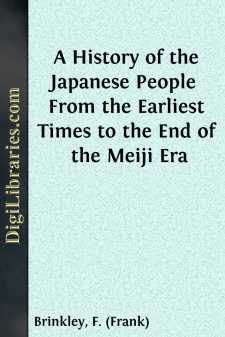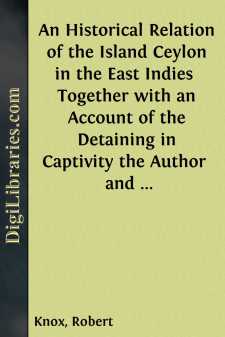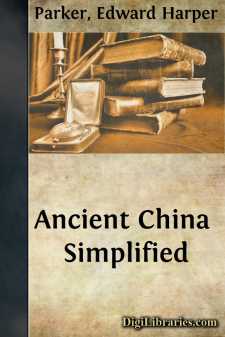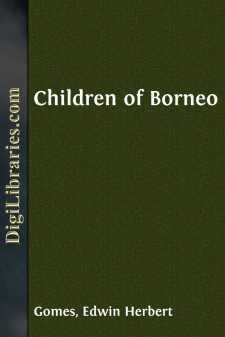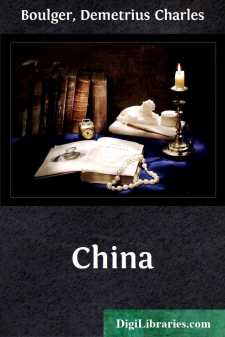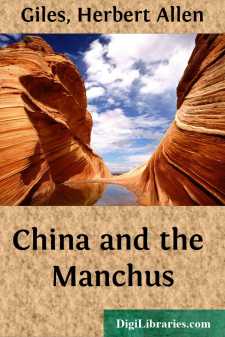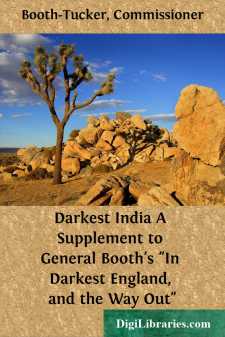History
- Africa 30
- Americas (North Central South West Indies) 50
- Ancient 68
- Asia
- Australia & New Zealand 8
- Canada 41
- Caribbean & West Indies 1
- Civilization 20
- Eastern Europe 12
- Europe 310
- Expeditions & Discoveries 60
- General 77
- Historical Geography 1
- Jewish 9
- Latin America 3
- Medieval 8
- Middle East 13
- Military 248
- Revolutionary 8
- Study & Teaching 5
- United States 353
- Western Europe 56
- World 13
Asia Books
Sort by:
by:
Wolfram Eberhard
Chapter One 1 Sources for the earliest history Until recently we were dependent for the beginnings of Chinese history on the written Chinese tradition. According to these sources China's history began either about 4000 B.C. or about 2700 B.C. with a succession of wise emperors who "invented" the elements of a civilization, such as clothing, the preparation of food, marriage, and a state...
more...
CHAPTER I THE HISTORIOGRAPHER'S ART IN OLD JAPAN MATERIALS FOR HISTORY IN the earliest eras of historic Japan there existed a hereditary corporation of raconteurs (Katari-be) who, from generation to generation, performed the function of reciting the exploits of the sovereigns and the deeds of heroes. They accompanied themselves on musical instruments, and naturally, as time went by, each set of...
more...
by:
Robert Knox
CHAP. I. How this Island lyes with respect unto me Neighbouring Countries, I shall not speak at all, that being to be seen in our ordinary Sea-Cards, which describe those Parts; and but little concerning the Maritime parts of it, now under the Jurisdiction of the Dutch: my design being to relate such things onely that are new and unknown unto these Europæan Nations. It is the Inland Countrey therefore...
more...
AIDS TO MEMORY There is much repetition in the book, the same facts being presented, for instance, under the heads of Army, Religion, Confucius, and Marriages. This is intentional, and the object is to keep in the mind impressions which in a strange, ancient, and obscure subject are apt to disappear after perusal of only one or two casual statements. The Index has been carefully prepared so that any...
more...
CHAPTER I Away down in the Indian Ocean there is a long chain of islands that stretches from Burmah to Australia. One of these is New Guinea which is the largest island in the world (leaving out Australia), and Borneo comes next in size. It is nearly four times as large as England. One quarter of it—the States of Sarawak and British North Borneo—is under British influence. The rest is all claimed...
more...
CHAPTER I THE EARLY AGES The Chinese are unquestionably the oldest nation in the world, and their history goes back to a period to which no prudent historian will attempt to give a precise date. They speak the language and observe the same social and political customs that they did several thousand years before the Christian era, and they are the only living representatives to-day of a people and...
more...
CHAPTER I—THE NÜ-CHÊNS AND KITANS The Manchus are descended from a branch of certain wild Tungusic nomads, who were known in the ninth century as the Nü-chêns, a name which has been said to mean "west of the sea." The cradle of their race lay at the base of the Ever-White Mountains, due north of Korea, and was fertilised by the head waters of the Yalu River. In an illustrated Chinese work...
more...
CHAPTER I. WHY "DARKEST INDIA?" It is unnecessary for me to recapitulate the parallel drawn by General Booth between the sombre, impenetrable and never-ending forest, discovered by Stanley in the heart of Africa, and the more fearfully tangled mass of human corruption to be found in England. Neither the existence, nor the extent, of the latter have been called in question, and in reckoning the...
more...
by:
Jacob Abbott
Chapter I.Four different modes of life enumerated.There are four several methods by which the various communities into which the human race is divided obtain their subsistence from the productions of the earth, each of which leads to its own peculiar system of social organization, distinct in its leading characteristics from those of all the rest. Each tends to its own peculiar form of government,...
more...
THE DEATH OF AN EMPEROR His Imperial Majesty, Tsai-Shun, deputed by Heaven to reign over all within the four seas, expired on the evening of Tuesday the 13th January 1875, aged eighteen years and nine months. He was erroneously known to foreigners as the Emperor T'ung Chih; but T'ung Chih was merely the style of his reign, adopted in order that the people should not profane by vulgar...
more...


![A history of China., [3d ed. rev. and enl.]](https://digilibraries-com.s3.eu-central-1.amazonaws.com/covers/2eac5372-aeee-46a0-90e7-67e24bd8e549.jpg)
